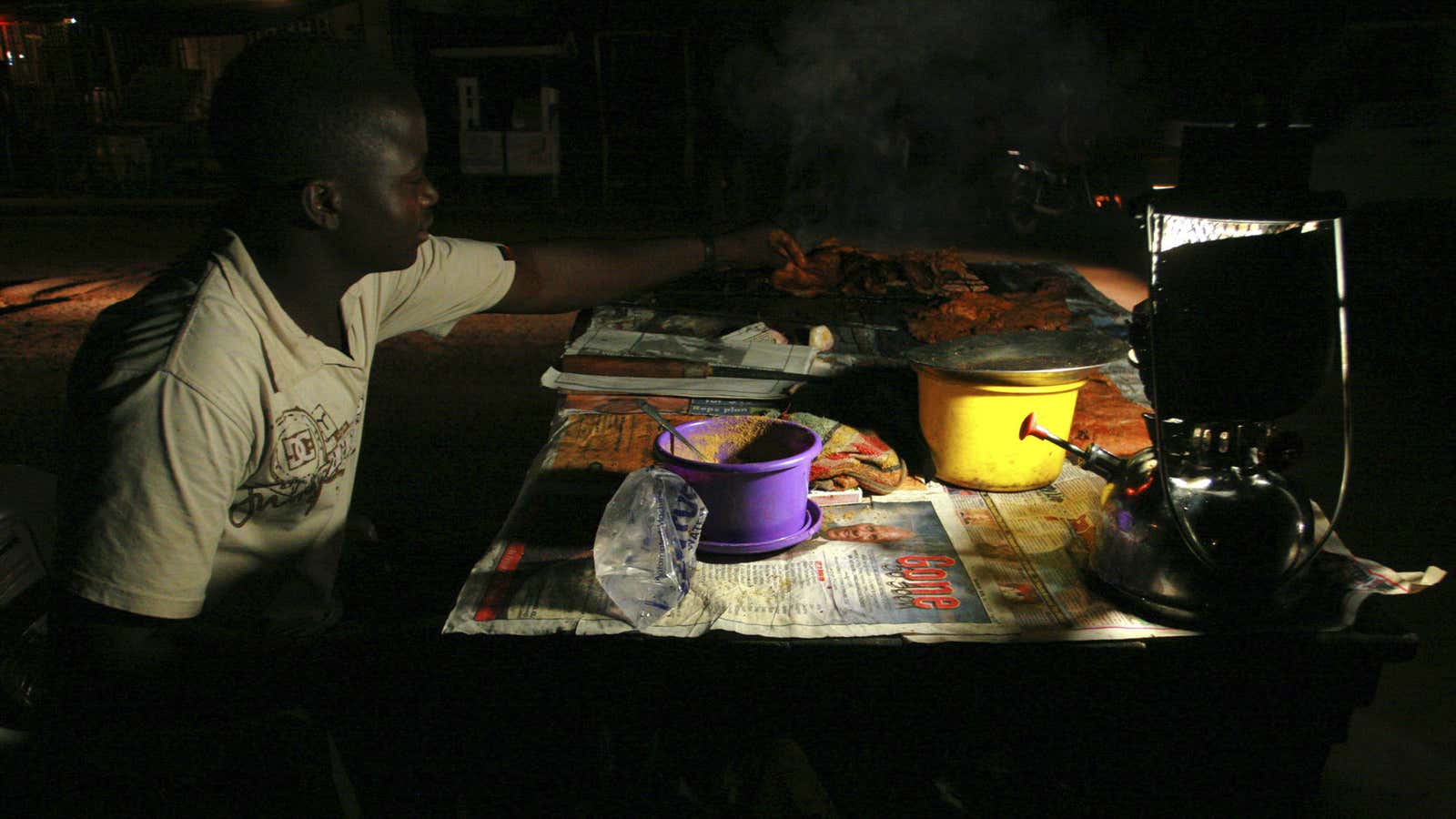Electricity, electricity, electricity. This is the number one issue Nigerians want the new government of Muhammadu Buhari to improve above all else.
When you look at the cost of electricity in Africa’s largest economy, it immediately becomes clear why.
On average Nigerians spend about NGN3,374 ($17) on their monthly electricity bills, according to data from NOIPolls. However, the erratic distribution of power has always compelled folks to seek alternative sources—primarily back-up generators, which bumps up the costs households and businesses spend on electricity quite significantly. On average the monthly cost for the fuel to run these generators adds an additional NGN9,529 ($48) to a household’s bill. That is three times the cost of direct supply.
The issue of reliable power has dogged Nigeria for a while, contributing to its reputation as being one of the more difficult places to do business in Africa. Africa’s largest economy comes in at 36 on the ease of doing business rankings, according to the World Bank. Nigeria trails the likes of Burundi, Sudan and Equatorial Guinea, countries not exactly known for being the continent’s economic powerhouses.




